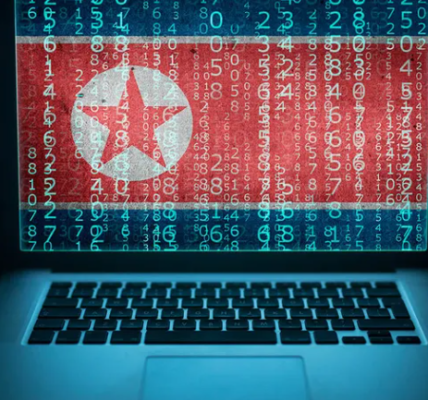British intelligence chiefs are alerting senior military officers and government officials to a post pandemic hike in honey trap operations by “beautiful Chinese spies.”
Security sources have told National Security News (NSN) that the activity levels of the Chinese Intelligence Services in the UK, the US, and Europe are higher now than ever before.
Sources also said that Chinese agents are using a wide range of tactics, including cyber warfare, hacking, honeytrap operations, and blackmail, to obtain classified material and intelligence.
Honeytraps are one of the espionage world’s oldest persuasion methods and have been used for centuries to obtain states secrets through pillow talk. One senior British Army officer revealed that he believes he almost fell victim to a Chinese honeytrap operation while attending a conference in London.
The officer, who spoke on the condition of anonymity and who is still serving, said that he had travelled up to London and was staying at the five-star Royal Horse Guards hotel in London before attending a conference the following day at the Royal United Services Institute in London.
The officer, who had recently separated from his wife, said that he was alone at the hotel’s sleek Equus bar having a quiet drink and reading a book, when a Chinese woman in her early 30’s struck up a conversation.

The officer said, “I think she said to me something like that’s a great book. I turned and there was this very beautiful woman who basically started a conversation with me about English literature and her love of Thomas Hardy and loved the west country – what she called Hardy country. She spoke perfect English, with only the hint of a Chinese accent.
“I said something like ‘That’s a coincidence, I live in the west country’ told her that I was attending a conference in London. She wasn’t at all pushy, just very sweet and friendly. But very soon I realised that I had told her that I was a senior Army officer, attending a security conference in London followed by meetings at the MoD.
“She had said that she was worried about terrorism, and I explained that although the threat was real – it was limited. We had been chatting for around 90 minutes and had a few drinks and then the alarm bells went off. I realised that she had completely engineered the conversation so that I was talking about myself and telling her what I did.
“Initially I thought she was an escort and that I was being played. I just couldn’t help thinking why is this very beautiful woman chatting up a middle-aged, balding, overweight man like me. Then the penny dropped, and I sort of panicked. I quickly came up with some excuse and left. I felt like a complete fool and very embarrassed. I thought about reporting the event but I worried that I might be damaged by it so I chalked it to experience. I was annoyed with myself because I had previously had briefings when I had travelled to Russia to attend conferences back in better times. Back then we were told assume every room you’re in is bugged and don’t have sex with any Russian women.”
Ironically part of the hotel was once the home of Sir Mansfield Cumming, the first Chief of the UK’s MI6 Secret Intelligence Service.

An MoD document called ‘The Ministry of Defence Manual of Security’, which was distributed amongst senior officials, warned of the threat posed by female Chinese agents at least 10-years ago.
The document said “The Chinese intelligence services have been known to use blackmail to persuade visitors to work for them. Sexual involvement should be avoided, as should any activity which can possible be construed as illegal.”
The document also reveals tactics used Russian and Chinese spies to obtain pictures of foreign VIPS having sex with their agents. The manual continues, “From the moment a visitor enters the country, he or she may be reported on by a wide variety of people, including officials, business contacts, tourist guides, hotel employees and apparent casual contacts.
“People who speak the visitor’s own language may be introduced in such a way as to make him think that it was the visitor who took the initiative, or that their meeting was entirely fortuitous.”
The document describes China as having a “voracious appetite for all kinds of information; political, military, commercial, scientific and technical”, and continues “The Chinese have realised that it is not productive to simply steal technology and then try to `reverse engineer it’. Through intelligence activity they now attempt to acquire an in-depth understanding of production techniques and methodologies. There is an obvious economic risk to the UK.”
The manual adds that the Chinese make “no distinction between `information’ and `intelligence’”, saying that their appetite for information, particularly in the scientific and technical fields, is “vast and indiscriminate”
It continues: “They do not `run agents’ they ‘make friends’. Although there are Chinese `intelligence officers’, both civilian and military, these fade into insignificance behind the mass of ordinary students, businessmen and locally employed staff who are working (at least part-time) on the orders of various parts of the State intelligence gathering apparatus.”
MI5 and MI6 have secretly warned hundreds of British defence and technology companies their staff could be unwittingly recruited by foreign intelligence agencies.
British intelligence bosses believe Chinese foreign agents are exploiting social media to try to recruit assets, such as British defence chiefs and government officials, with the business networking site LinkedIn as a prime hunting ground. Thousands of Chinese spies are known to be using the LinkedIn platform to make contacts with British industry chiefs in what one source said was a “mass fishing expedition”.
One source last night said that LinkedIn was the ideal recruiting ground for agents by hostile states because it was full of people looking for jobs. Chinese agents use LinkedIn by pretending to be corporate head-hunters offering paid trips to China for speaking or consulting opportunities.
Colonel Phil Ingram, a former Army Intelligence Officer, veteran of the Iraq War and a NATO planner, believes he was targeted by the Chinese Intelligence Service via LinkedIn in 2017. Col Ingram said he was first approached in 2017 by a person called Robin who claimed to be a Chinese businessman with links across the security industry.
Col Ingram, 58, said “It fitted the sort of people I would connect with, so I accepted.” The former Army officer said that he could produce a report based on open source intelligence on counter terrorism and security. He said “There was nothing on his profile that suggested which company he worked for, just generics. That seemed odd and alarm bells started ringing when he said we would want to get inside information that isn’t easily accessible to anyone.
Col Ingram added that Robin said: “You can guess the sort of stuff I’m after.”
Robin also wanted him to present his report in China, but Col Ingram refused, saying he would only do it in London. He added that Robin wanted to use encrypted email that could not be accessed inside China except by intelligence services. Robin emailed him on it within ten minutes.
Col Ingram explained “At that stage I was 99.99% sure it was someone linked to the Chinese government.
“It was classic recruitment. If I’d decided to go to China, they’d have sent me back to get other bits and pieces. They’d have effectively recruited an agent. If I went and I wasn’t co-operative, or they weren’t certain I was in their back pocket, they would have engineered activities to gather compromising material for blackmail.”
Col Ingram added that after breaking off contact, Robin’s Linkedin profile was removed.
The disclosure comes just days after it emerged that former RAF pilots had been offered up to £250,000 a year to train Chinese combat pilots.
Two weeks ago, the head of the GCHQ intelligence agency, Sir Jeremy Fleming, warned China could use its own version of GPS technology to monitor and track individuals, describing the country as a “real long-term threat” to UK national security.
Sir Fleming said China is using science and technology as a way of bringing other countries “into its sphere of influence”. He also described one of China’s top internet firms, BeiDou, as a “problem”. The revelation follows the disclosure earlier this month by Sir Fleming that China is using key technologies to spread its influence around the world – even using surveillance from space.
His comments followed those of FBI Director Christopher Wray and UK MI5 Director General Ken McCallum, who urged business leaders in July to be aware of the threat from the Chinese government.
The two security chiefs said that China would use every tactic at their disposal to steal foreign tech. Director Wray said at the time: “The Chinese government is set on stealing your technology–whatever it is that makes your industry tick–and using it to undercut your business and dominate your market. And they’re set on using every tool at their disposal to do it.”




















































































































































































































































































